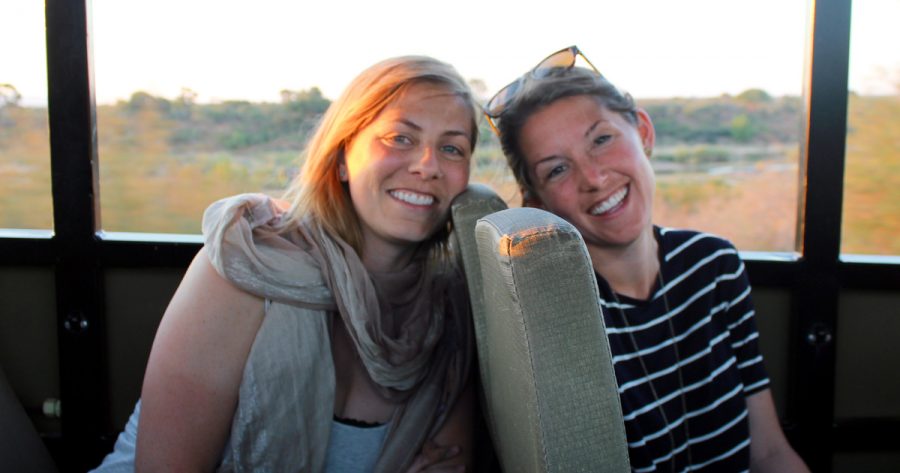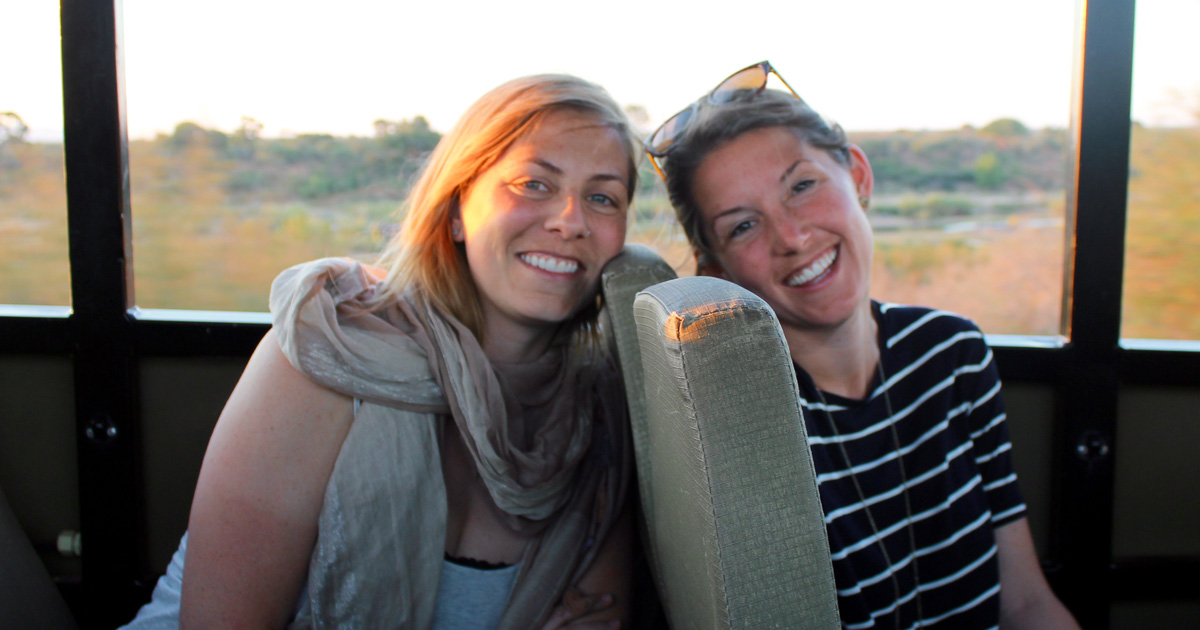
Safety Tips for Travel to South African Game Parks with Just the Girls
Recently, one of my followers asked me about exploring game parks around South Africa, as a woman… writes Annie DuPre-Reynolds. I’m very independent (just ask my husband) and have gone to Pilanesberg, the Kruger and Golden Gate National Parks – to name a few – on my own in the past few years. I’ve also organised trips for girlfriends visiting from […]

Recently, one of my followers asked me about exploring game parks around South Africa, as a woman… writes Annie DuPre-Reynolds. I’m very independent (just ask my husband) and have gone to Pilanesberg, the Kruger and Golden Gate National Parks – to name a few – on my own in the past few years.

I’ve also organised trips for girlfriends visiting from America and the UK (that’s how I celebrated the week leading up to my wedding in November!). In other words, I’m all about independent travel – but I also emphasise safety and awareness in travel. Here are a few of my pointers on traveling in South Africa as a woman.
1. Know the law

In South Africa you are likely to run into police checkpoints/roadblocks when on a road trip. I have had this happen multiple times, and while I hate to say it, there have been moments where a police officer is clearly attempting to get a bribe from me.
It’s no secret – in almost every conversation I have had, with locals or foreigners, they’ll say this has happened to them once or twice.
Personally I have never paid a police officer to let me off the hook, but I’ve also never been charged with anything.
Most of the time, the officers conducting a roadblock just want to see that your license and tags are current and not expired.
If you are a foreigner driving in South Africa, you should know what police are legally allowed to do when they’ve waved you over. For example, if an officer asks to check the inside of your boot, you can say NO. If they don’t have a search warrant, you do not need to grant them ability to search. Otherwise, they are only allowed to search your vehicle with reasonable grounds – which they would later have to prove in a court of law.
2. Always be aware of your surroundings

Don’t stare at your phone (or stay on a call) when you’re walking alone. I know it sounds counter-intuitive, but if you look distracted when you’re alone you become more of a target. Scan your horizon and look back occasionally. Walk confidently and with purpose. This will also boost your actual confidence level!
When you’re driving, if you feel like a vehicle is following you, pull in to a public petrol station or other location. Call a friend or family member to let them know your concern, if you feel that would be appropriate.
You can also call the police – 10111 – to report something suspicious.
I’ve never had this happen to me, but a friend of mine told me a story of being followed home after work by a suspicious looking vehicle. She didn’t go home right away but instead drove to a busy shopping centre, and the person stopped following her. Take your safety into your own hands!
If you’re driving before sunrise on the way to a game park (most of them open at first light, and you might want to get there a bit early to get in the queue) just be extra aware of your surroundings:
- Don’t stop if you come across rubble in the road.
- Don’t stop if you’re alone and someone on the side of the road tries to flag you down.
- Keep to your drive plan and only stop at open businesses and busy petrol stations.
- Don’t leave your purse/bag/wallet/laptop sitting on the passenger seat, rather put it in the boot or glove compartment.
3. Research the park – and your route to get there – before you travel

If you’re driving to the Kruger from Johannesburg, for example, download the map and your directions before you leave home. It’s no use having to constantly stop and check directions, and there’s no excuse for messing with your phone while driving. Have this all organised ahead of time, turn the voice on to tell you when to exit the highway, and of course organise some music or podcasts to keep you entertained on the long haul!
Make sure you have an idea of the sights you want to see in the park. Have a map of the park so you can get around easily, and ask the park staff if there are any particularly bad roads you should avoid.
If you’re self-driving the entire game drive, make sure you’re in a decent vehicle for the expedition. While 4x4s are awesome for this, not everyone has access to one – but don’t drive an expensive sedan or something else totally not-offroad-worthy into the Kruger National Park, please!
Know how to change a flat tyre – there are lots of sharp objects on the open road, and sometimes on game roads – you don’t want to get into a situation where you’re stranded because you can’t change your own tyre. It’s not too difficult to learn; here’s an online tutorial that’s quite easy to follow.
4. Tell family and friends where you’re going

You’re unlikely to have constant cell phone signal within a national park. Most of the time, in the Kruger for example, you will only find signal close to camp grounds. That’s one of the best things about traveling to game parks – escaping the real world for a while!
But be sure to tell your friends and family all about your plans, before you go. Keep to a certain timeline (i.e. if you say you’re going to be gone for two days but change your mind and stay for a week, don’t leave everyone guessing where you are!) and update your loved ones when you are home safely.
This certainly seems like a no-brainer, but it’s a good habit to keep.
5. Take precautions

I always carry a can of pepper spray with me, just in case. I’ve never had to use it, but it’s also comforting knowing I have some form of personal protection. Check out self-defense courses, if that interests you.
I also recommend saving the phone numbers of local safety operators and park management, in case you need to make an emergency call. Make sure your airtime is topped-off and you have enough data to use the internet or maps in an emergency. Bring flashlights, extra water, food and supplies on your trip.
Lists are your friend – be sure you have everything you need for your weekend or week(s) away!
6. Have fun!!

I’ve heard a lot of people who focus on how dangerous and scary South Africa can be. While I agree it is important to remain aware of the crime rate and dangers around us, I think it’s even more important to focus on the beauty and kindness of people here.
I’m certainly not pitching myself as a safety expert – but I want to share my experiences as a foreign national living in South Africa, and more importantly as a woman who loves to explore this beautiful place.
So if you’re a woman (or man!) who wants to explore the parks of South Africa, be sure to take photos, write, and live in the moment (and tell me about it)!
This article was originally posted by Annie DuPre-Reynolds on her brilliant blog Run, Ride, Wine, South Africa here, and is republished with her kind permission. Follow Annie’s blog here: RunRideWine.com
